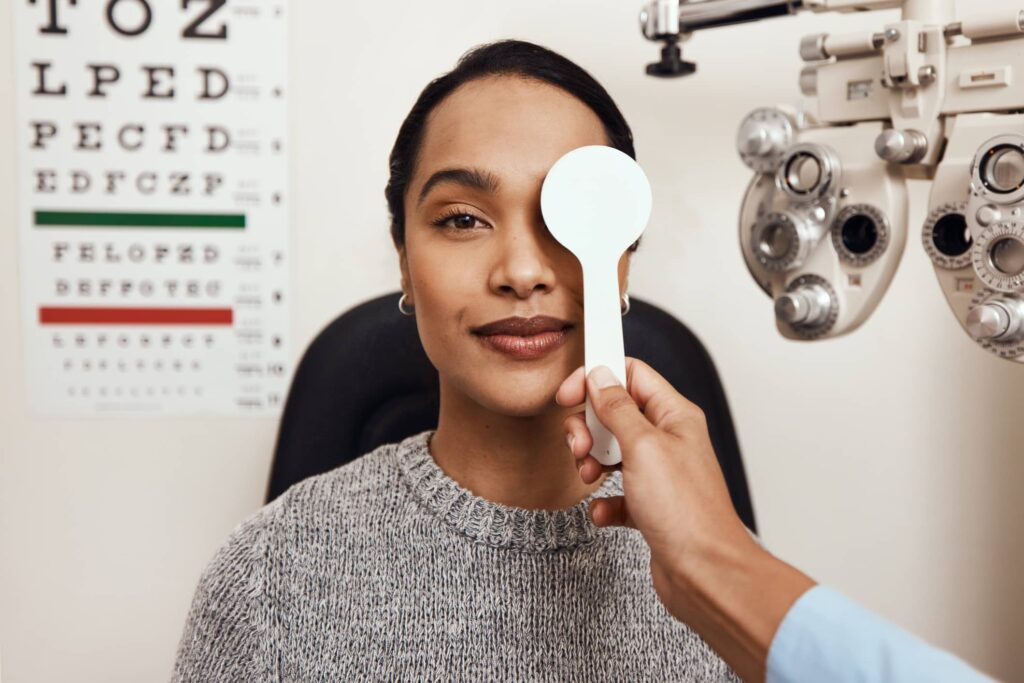All Categories
Featured
Table of Contents

Normal eye exams are necessary for maintaining excellent vision and detecting prospective eye health problems early. The frequency of these tests can vary considerably based on a person's age, way of life, and general health. Understanding the advised timetable for eye exams can help guarantee that people of any ages receive appropriate care and surveillance for their eye wellness.
Newborns and Toddlers (0-2 Years)
For young children and infants, eye examinations are essential for finding any kind of potential vision issues early on. The American Academy of Ophthalmology recommends that a child's very first eye exam ought to happen at around 6 months old. Throughout this preliminary browse through, the eye care specialist will analyze the kid's visual advancement and check for any apparent eye concerns.Following this first exam, it is advised that kids have another eye exam at age 3. This see will certainly concentrate on analyzing the child's general aesthetic function, including eye placement and the capability to track objects. If no concerns are identified, the next exam ought to be set up prior to the youngster begins institution, normally around age five or six.
School-Aged Kids (6-18 Years)
When children reach school-age child, routine eye examinations ought to be scheduled every one to 2 years. Vision is vital for discovering and growth, and lots of colleges carry out vision testings. Nevertheless, these screenings do not change a comprehensive eye test by an eye care professional.For children involved in sports or tasks requiring significant visual emphasis, annual eye exams may be advisable. In addition, if a youngster shows indicators of vision problems-- such as trouble checking out, scrunching up your eyes, or frequent headaches-- a see to the eye doctor need to be scheduled immediately.
Young Grownups (19-39 Years)
Young person commonly have fewer vision changes than older age, however routine eye tests continue to be essential. The general referral is to arrange an eye test every 2 years during this period. Nonetheless, people with details threat elements-- such as a household background of eye condition, diabetic issues, or those that wear call lenses-- ought to consider yearly eye exams.Additionally, those who spend considerable time on digital gadgets may experience digital eye pressure. If signs and symptoms such as dryness, fatigue, or obscured vision occur, it might be sensible to see an eye treatment specialist sooner.
Adults (40-64 Years)
As people go into midlife, the probability of creating vision problems boosts. Adults aged 40 to 64 must set up eye tests every one to 2 years. This age team may begin to experience presbyopia, a natural age-related problem that makes it testing to concentrate on close things. Eye exams can additionally help spot various other usual age-related problems such as glaucoma, cataracts, and macular degeneration.If people in this age team have threat aspects such as hypertension or diabetes, they may need even more regular examinations to monitor their eye wellness carefully.
Senior Citizens (65 Years and Older)
For senior citizens, regular eye exams become even more essential. The American Optometric Organization advises that people aged 65 and older have an eye test at the very least once a year.Final thought.
Understanding the proper schedule for eye exams based upon age is essential for maintaining optimum eye health throughout life. From infants to elders, regular eye evaluations play an important role in detecting problems early and guaranteeing that vision stays sharp. By sticking to these guidelines and talking to an eye treatment professional, individuals can take positive actions toward protecting their vision and overall health and wellness. Whether it's a kid's very first visit or an elderly's yearly exam, prioritizing eye care is an investment in long-lasting well-being.Table of Contents
Latest Posts
The History and Evolution of Ornamental Iron Fencing
Published Feb 09, 25
2 min read
Experience the Boogaloo: Eating, Drinks, & Sports at FunCity Hotel
Published Feb 04, 25
2 min read
Choosing Between Continuous Panel Fencing and Traditional Fencing: What's Best for You?
Published Feb 03, 25
1 min read
More
Latest Posts
The History and Evolution of Ornamental Iron Fencing
Published Feb 09, 25
2 min read
Experience the Boogaloo: Eating, Drinks, & Sports at FunCity Hotel
Published Feb 04, 25
2 min read
Choosing Between Continuous Panel Fencing and Traditional Fencing: What's Best for You?
Published Feb 03, 25
1 min read